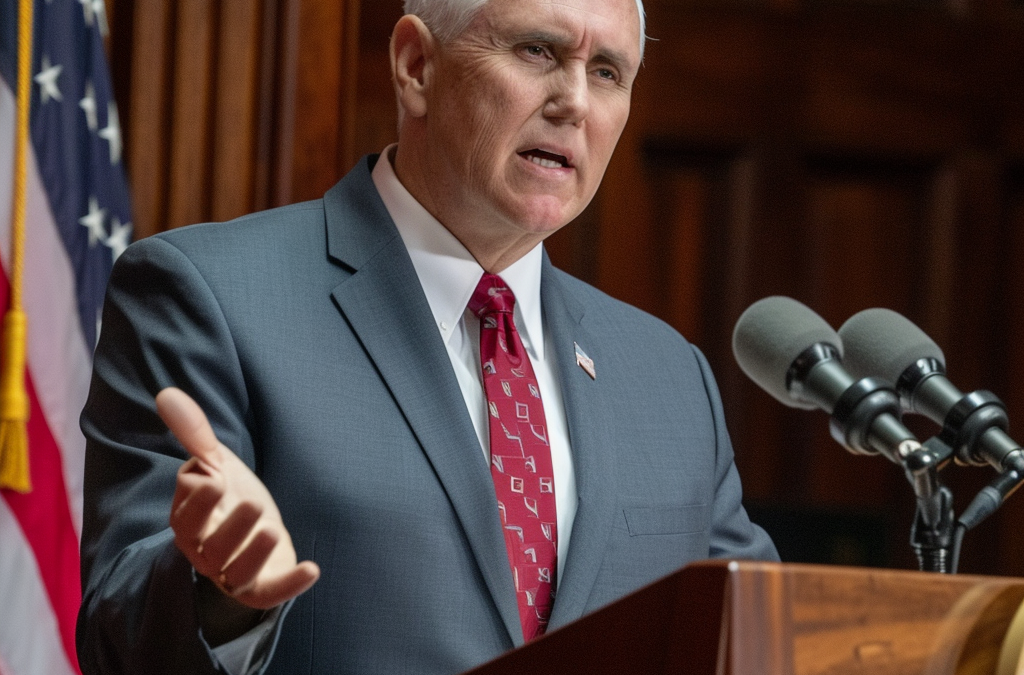Former Vice President Mike Pence has strongly denounced a conspiracy theory alleging that the FBI instigated the January 6, 2021 attack on the U.S. Capitol. This theory has been widely discredited, yet it continues to be propagated, notably by former President Donald Trump. The conspiracy suggests that entities like Antifa and the FBI were the actual orchestrators of the attack, rather than Trump’s supporters.
Pence’s rejection of this theory is significant given his first-hand experience of the events of January 6, when rioters stormed the Capitol and targeted him personally. His comments, made during an interview with CNN’s Jake Tapper from Tel Aviv, reflect his firm belief in the FBI’s innocence regarding these events. He expressed gratitude for the FBI’s role in arresting those who participated in the attack and emphasized the need for them to be held accountable to the fullest extent of the law.
During the same interview, Pence also discussed other pertinent topics, such as the ongoing conflict between Israel and Hamas, the hospitalization of Defense Secretary Lloyd Austin, and the upcoming Iowa caucuses, where he expressed hope for a “fresh start” for Republicans.
Trump, in contrast, has continued to frame the violence of the Capitol riot in a different light. At a recent rally in Sioux Center, Iowa, he reiterated his belief in the conspiracy theory, even going so far as to describe the January 6 crowd as the largest he had ever addressed. Additionally, he referred to those arrested and charged in connection with the riot as “hostages,” claiming they had been treated unjustly and had gathered to protest a “rigged election.”
This controversy comes amid a larger context of Trump’s ongoing claims about the 2020 election fraud and the Capitol riot, which have led to charges against him at both the federal level and in Georgia. The House select committee investigating the January 6 Capitol attack named Trump as the “central cause” of the riot in its final report in 2022, stating that many followed his lead.
These developments mark a significant divergence in the narratives presented by two leading figures of the Republican Party, reflecting deep divisions and contrasting perspectives on the events of January 6, a day that has left an indelible mark on American politics and history.

